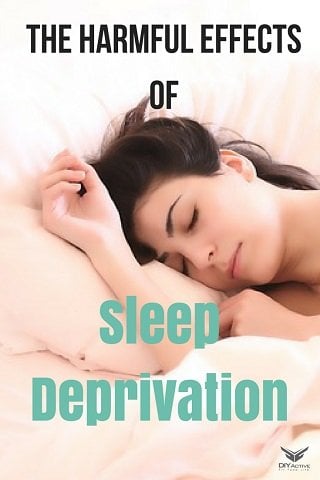Sleep Deprivation Is Serious Business
Undoubtedly, a lack of sleep can be harmful to people. Last year, sleep deprivation was responsible for the deaths of over 5,000 individuals in automobile crashes. At slower paces, lacking sleep causes a slow and more debilitating effect on the lives of people who don’t get enough rest.
Why Sleep Matters
What’s scarier is that people are now attuned to extended hours of work, again reducing the time it takes for them to sleep properly. Work hours are now longer due to high demands. This makes unhealthy sleeping habits a trend.
Another example of an unhealthy habit is when people work out for extended hours in the gym to get fit, but sacrifice restorative sleep to do so. While your body will see some benefits, science says that proper and long rest is just as important.
Through sleep, the body begins to regenerate. Cellular tissues start to repair themselves. Here are some examples to get a more detailed view of what processes happen during a person’s regular sleeping hours.
Cleaning up inside the brain
In a 2013 study, mice were shown to have waste removal activities in the brain during sleeping hours. Waste removed from the brain was toxic and identified as triggers for causing Alzheimer’s disease. These waste materials get carried away by the blood and pass through the proper channels.
The brain processes its day during rest cycles (aka sleep). Memories develop here as well as information retention. This method is also the body’s way of relaxing
Hormone Production
During sleep, certain organs produce hormones that stimulate the growth and development of the body. The hypothalamus, in particular, is responsible for triggering other glands in the endocrine system to produce hormones that not only help in growth but with fighting off infection as well.
Stress
As mentioned earlier, sleep is where the brain begins to get rid of toxic matter. This means that people who don’t get enough sleep have a higher chance of acquiring Alzheimer’s disease and other cognitive disorders.
Stress also begins to develop if the brain does not get an opportunity to relax. Not giving the body enough time to recuperate means that the brain isn’t getting a chance to create pleasant memories and experiences necessary to de-stress.
Compromised Immunity
The immune system of the body is responsible for fighting off infections. During sleep, Cytokines are released to track down any bacteria or virus that’s left behind during regular waking hours and the normal functioning of the immune system.
Sleep deprivation disables the release of those cytokines which enables different bacteria and viruses to recuperate and spread throughout the body. This fact also explains why people who don’t get enough sleep are more sickly or more prone to get sick.
Increasing your sleep through naps or by sleeping longer at night can help keep you healthy.
Problems with the Endocrine System
The endocrine system is responsible for releasing hormones that help the body grow and develop. The hypothalamus releases these hormones during sleep. Waking up suddenly throughout the night can hamper hormone production.
The fact mentioned above is true especially in children who don’t get the right amount of sleeping hours. These hormones are responsible for building muscle mass and helps repair tissues and cells.
Unhealthy Heart
The heart belongs to the cardiovascular system, which is responsible for the pumping of blood throughout the body. A lot of conditions happen in the cardiovascular system when sleep deprivation becomes a routine for people.
Atherosclerosis, a buildup of plaque within the major vessels of the heart, is a dangerous condition that can cause aneurysms or stroke. High Blood pressure, diabetes, and other lifestyle-related diseases increase significantly with sleep deprivation.
Wrap-Up
Sleep is indeed an important part of every living being. Sleeping is where the body relaxes and enables its healing abilities to repair any damaged tissues and cells. Sadly, increasing demands in working and employment have led people to have more unhealthy sleeping habits.
This fact is becoming a worrying trend. People are accepting these unhealthy sleeping habits as normal so they can work longer hours or fit in more stuff in a day.
Being busy at the expense of sleep and true relaxation is not healthy.
Due to this practice, a lot of individuals develop horrible conditions including diabetes, lower immunity, hormonal problems, etc. We need to focus on maintaining a healthy lifestyle by eating well, exercising, and sleeping enough.
Keep your eyes peeled for a follow-up article on getting much better sleep.
- Effects of Sleep Deprivation - July 12, 2017